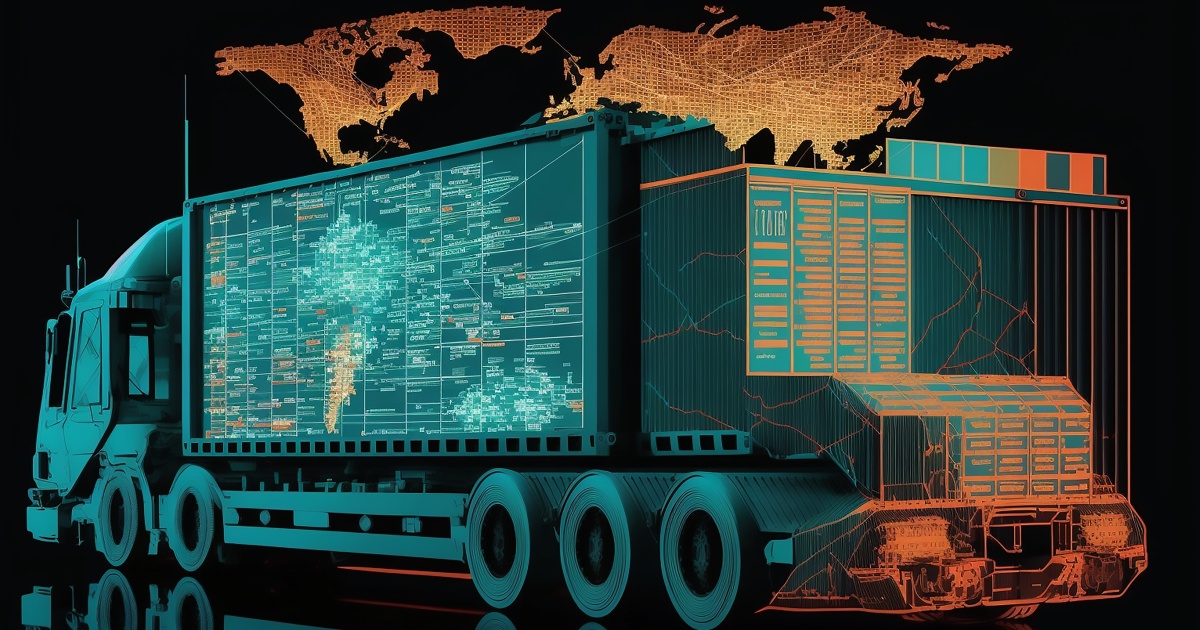
The IoT fleet management market is projected to grow at a CAGR of 20.9% from 2023 to 2032, growing from $7.1 billion in 2022 to $46.7 billion in 2032, according to Acumen Research and Consulting.
The growth is primarily driven by the need for efficient fleet monitoring, optimization, and cost savings in the transportation industry. These benefits are achieved through fleet management systems that offer real-time tracking, remote diagnostics, and predictive maintenance capabilities, which help fleet operators improve their operational efficiency, reduce fuel consumption, and minimize vehicle downtime.
Of course, the growth is possible thanks to technological advancements in IoT and connectivity solutions. With the proliferation of connected devices and the availability of high-speed wireless networks, fleet operators can leverage these tools to collect and analyze vast amounts of data, gaining valuable insights into their operations and making informed decisions.
The increasing demand for sustainability and environmental regulations in the transportation industry also benefits the market. Fleet management systems enable fleet operators to monitor fuel consumption, optimize routes, and promote eco-friendly driving behaviors, contributing to reduced emissions and environmental impact.
Additionally, the growing complexity of fleet operations and the need for real-time visibility and control further drive the adoption of these solutions. These systems provide fleet operators with a holistic view of their operations, enabling them to address issues promptly, optimize resource allocation, and improve overall fleet performance.
However, the market growth may face a few challenges, including concerns about data privacy and cyber security, high initial investment costs, interoperability and standardization issues. These potential potholes are largely due to the diversity of vehicle types and manufacturers in the transportation industry, a shortage of skilled personnel, and varying regulatory and legal frameworks across regions.
Despite the challenges, though, companies are enjoying the benefits of next-gen technologies behind fleet management solutions.
- Operational Efficiency: Fleet management solutions help companies optimize their operations by providing real-time visibility into their fleet of vehicles. They can track vehicles, monitor fuel consumption, manage maintenance schedules, and analyze driver behavior to improve efficiency and reduce costs.
- Vehicle and Driver Safety: Companies can monitor vehicle conditions and driver behavior, promoting safer driving practices and reducing accidents. Features like real-time GPS tracking and driver performance analytics help companies identify risks and take proactive measures to ensure safety or drivers, other travelers, and shipments.
- Cost Reduction: Companies can optimize fuel consumption, reduce maintenance costs through timely repairs and servicing, and minimize vehicle downtime. Fleet management solutions also help identify inefficient routes and driving patterns, allowing companies to make informed decisions to lower overall operational expenses.
- Compliance and Regulatory Requirements: Companies operating fleets need to comply with various regulations and standards. Fleet management solutions can help automate compliance processes, such as electronic logging devices (ELD) for hours of service (HOS) compliance, ensuring adherence to legal requirements and reducing administrative burdens.
- Customer Service Improvement: Fleet management solutions enable companies to provide better customer service by optimizing delivery routes, providing accurate estimated arrival times, and facilitating real-time communication between drivers and dispatchers. This improves overall customer satisfaction and enhances the company's reputation.
- Integration with telematics platforms – IoT Fleet Management systems are increasingly being integrated with telematics platforms, allowing for comprehensive data collection and analysis, driver performance monitoring, and vehicle diagnostics.
IoT technology, of course, plays a crucial role in modern fleet management solutions by connecting vehicles, sensors, and other devices to the internet, allowing for seamless data collection, transmission, and analysis. Here are some of the ways IoT contributes to fleet management and allows companies to maximize their operational and cost efficiencies.
- Real-Time Vehicle Tracking – IoT-enabled devices, such as GPS trackers, can transmit real-time location data, enabling companies to monitor the exact position and movement of their vehicles. This information helps optimize routes, manage schedules, and provide accurate arrival times to customers.
- Sensor Integration – IoT sensors can be used to collect data on various vehicle parameters such as fuel levels, engine performance, tire pressure, temperature, and more. This data helps companies identify maintenance needs, prevent breakdowns, and ensure vehicles are operating at their optimal level.
- Remote Diagnostics and Maintenance – IoT technology allows for remote diagnostics, enabling fleet managers to monitor vehicle health and identify issues before they become critical. It helps schedule proactive maintenance, reducing the risk of unexpected breakdowns and minimizing vehicle downtime.
- Driver Monitoring and Safety – IoT devices can capture data on driver behavior, including speed, acceleration, braking, and adherence to traffic rules. This information enables companies to identify risky driving patterns, provide training, and promote safer driving practices.
- Data Analytics and Insights – The vast amount of data collected from IoT devices can be analyzed to derive valuable insights. Fleet management solutions leverage IoT technology to process and interpret this data, offering actionable intelligence for optimizing fleet operations, reducing costs, and making informed business decisions.
As fleet managers and their companies continue to adopt fleet management solutions, IoT will continue to be the driving technology behind them. They enable real-time visibility, data-driven decision-making, and enhanced operational efficiency, and are critical to the momentum the fleet management market is experiencing.
Edited by
Erik Linask





